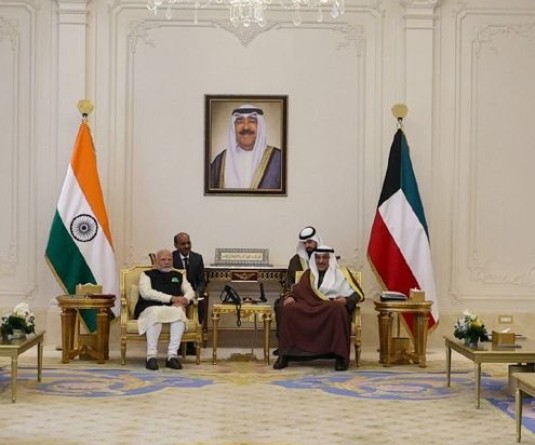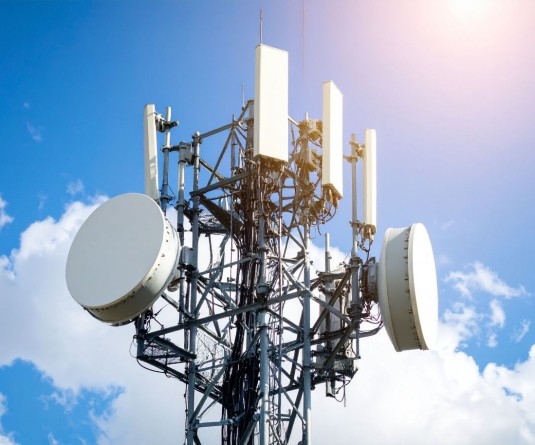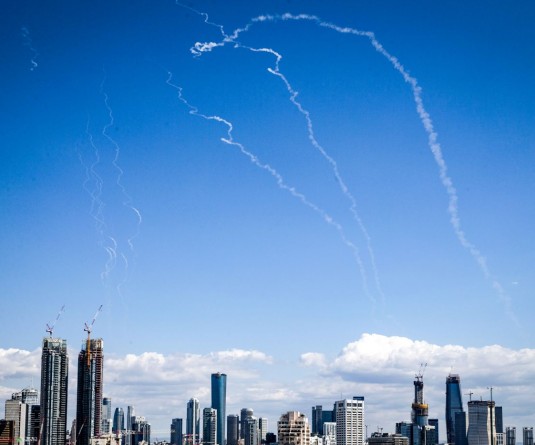
NEW DELHI, April 23 (agencies): A senior Gujarat cadre police officer, Sanjiv Rajendra Bhatt, has filed an affidavit in the Supreme Court stating that Chief Minister Narendra Modi directed top police officers on the eve of the 2002 pogrom to “allow the Hindus to vent their anger” and “teach a lesson” to Muslims following the Sabarmati Express carnage in which Hindu passengers died. Bhatt also accused the Supreme Court-appointed Special Investigation Team of trying to “cover up the larger conspiracy and official orchestration” behind the riots.
The 1988 batch IPS officer, now principal of the State Reserve Police Training College, Junagadh, said that he was present at the high-level meeting convened by the Chief Minister on the night of the Godhra incident on February 27, 2002, in his capacity as Deputy Commissioner of Intelligence in the State Intelligence Bureau, Gandhinagar, the post he held from December 1999 to September, 2002. He said he was told by the State control room about the meeting convened by Mr. Modi and instructed to remain present there with the then Director-General of Police, K. Chakravarthi. He surmised that he was asked to attend the meeting because his boss, the then Additional Director-General of Police, Intelligence, G. C. Raigar, was on leave that day.
According to Mr. Bhatt, whose testimony had been recorded by the SIT probing a complaint by Zakia Jaffrey, wife of a slain former Congress MP, “Mr. Narendra Modi said [at the February 27 meeting] that the bandh call had already been given, and the party [the BJP] had decided to support the same, as incidents like the burning of kar sevaks at Godhra could not be tolerated. He further impressed upon the gathering that for too long, the Gujarat police had been following the principle of balancing the actions against the Hindus and Muslims while dealing with communal riots. This time, the situation warranted that the Muslims be taught a lesson to ensure that such incidents do not recur ever again. The Chief Minister, Mr. Modi, expressed the view that the emotions were running very high amongst the Hindus, and it was imperative that they be allowed to vent out their anger,” the affidavit states.
Bhatt said he had given an account of the meeting in his depositions before the SIT. He claimed that at the conclusion of the February 27, 2002 meeting, the officials present tried to tell Mr Modi that his decision to bring the bodies of the kar sevaks burnt in the Godhra train carnage to Ahmedabad in the light of the “Gujarat Bandh” called by the VHP and backed by the ruling BJP could cause widespread communal riots across the State, and that the police neither had the manpower nor resources to deal with such a situation. Modi, however, was unrelenting and told the police officers that an incident like burning the kar sevaks could not be tolerated and that the Muslims had to “be taught a lesson.” Bhatt said the effects of Mr. Modi’s “directions” widely manifested in the “half-hearted approach and lack of determination” on the part of the police in dealing with the “widespread incidents and orchestrated violence” during the “state-sponsored bandh” and the days that followed.
Mr. Bhatt said that during his interactions with the SIT in November 2009 and subsequent meetings, he provided its investigators with all the details, but the SIT was disinclined to follow up on important leads. He also alleged that the SIT had chosen to coerce certain witnesses into refraining from stating the true facts. He said the special investigators appeared reluctant to examine the existence of any larger conspiracy or official orchestration behind the Gujarat riots and urged the Supreme Court to direct them to ensure that the investigation was carried out in all aspects. The case, in which Jaffrey has asked that an FIR be registered against Modi, comes up for hearing on April 27.
The 1988 batch IPS officer, now principal of the State Reserve Police Training College, Junagadh, said that he was present at the high-level meeting convened by the Chief Minister on the night of the Godhra incident on February 27, 2002, in his capacity as Deputy Commissioner of Intelligence in the State Intelligence Bureau, Gandhinagar, the post he held from December 1999 to September, 2002. He said he was told by the State control room about the meeting convened by Mr. Modi and instructed to remain present there with the then Director-General of Police, K. Chakravarthi. He surmised that he was asked to attend the meeting because his boss, the then Additional Director-General of Police, Intelligence, G. C. Raigar, was on leave that day.
According to Mr. Bhatt, whose testimony had been recorded by the SIT probing a complaint by Zakia Jaffrey, wife of a slain former Congress MP, “Mr. Narendra Modi said [at the February 27 meeting] that the bandh call had already been given, and the party [the BJP] had decided to support the same, as incidents like the burning of kar sevaks at Godhra could not be tolerated. He further impressed upon the gathering that for too long, the Gujarat police had been following the principle of balancing the actions against the Hindus and Muslims while dealing with communal riots. This time, the situation warranted that the Muslims be taught a lesson to ensure that such incidents do not recur ever again. The Chief Minister, Mr. Modi, expressed the view that the emotions were running very high amongst the Hindus, and it was imperative that they be allowed to vent out their anger,” the affidavit states.
Bhatt said he had given an account of the meeting in his depositions before the SIT. He claimed that at the conclusion of the February 27, 2002 meeting, the officials present tried to tell Mr Modi that his decision to bring the bodies of the kar sevaks burnt in the Godhra train carnage to Ahmedabad in the light of the “Gujarat Bandh” called by the VHP and backed by the ruling BJP could cause widespread communal riots across the State, and that the police neither had the manpower nor resources to deal with such a situation. Modi, however, was unrelenting and told the police officers that an incident like burning the kar sevaks could not be tolerated and that the Muslims had to “be taught a lesson.” Bhatt said the effects of Mr. Modi’s “directions” widely manifested in the “half-hearted approach and lack of determination” on the part of the police in dealing with the “widespread incidents and orchestrated violence” during the “state-sponsored bandh” and the days that followed.
Mr. Bhatt said that during his interactions with the SIT in November 2009 and subsequent meetings, he provided its investigators with all the details, but the SIT was disinclined to follow up on important leads. He also alleged that the SIT had chosen to coerce certain witnesses into refraining from stating the true facts. He said the special investigators appeared reluctant to examine the existence of any larger conspiracy or official orchestration behind the Gujarat riots and urged the Supreme Court to direct them to ensure that the investigation was carried out in all aspects. The case, in which Jaffrey has asked that an FIR be registered against Modi, comes up for hearing on April 27.
Guj ex-DGP refutes Sanjiv Bhatt’s claim
Ahmedabad, April 23 (PTI): Gujarat’s Director General of Police at the time of the post-Godhra riots said IPS officer Sanjiv Rajendra Bhatt, who has filed an affidavit in the Supreme Court implicating Narendra Modi in the clashes, was not present at the meeting with the Chief Minister held on February 27, 2002. “He (Mr. Bhatt) was not present at that particular meeting held with the Chief Minister and other high-ranking officials. I have told this to the Special Investigation Team (probing the riots) during my deposition,” K. Chakrabarthi, now retired, told PTI over phone on Saturday from Mumbai.
“Now, it is up to the SIT and the Supreme Court to decide on it,” he said. Bhatt, in his affidavit, has said he attended the said meeting (on the day of the Godhra train burning incident) as he was asked to accompany the DGP by the State control room. Bhatt, posted as DCP at the State Intelligence Bureau (SIB) during the 2002 riots, said he had attended the meeting along with the DGP. In his testimony before the SIT, Modi had also said Bhatt, being a junior officer at that time, was not present at the February 27 meeting.
In the affidavit, Bhatt has alleged the Gujarat Chief Minister, at the meeting, had instructed officers to allow Hindus “to vent out their anger” during the clashes and he wanted Muslims to be “taught a lesson.” Bhatt, in the affidavit filed on April 14, has also accused the Supreme Court-appointed SIT, headed by former CBI Director R.K. Raghavan, of a “cover-up” operation. The SIT is also probing Modi’s alleged role in the communal riots in which over 1,000 people were killed. The riots followed the Sabarmati Express carnage in which Hindu passengers died.
“Now, it is up to the SIT and the Supreme Court to decide on it,” he said. Bhatt, in his affidavit, has said he attended the said meeting (on the day of the Godhra train burning incident) as he was asked to accompany the DGP by the State control room. Bhatt, posted as DCP at the State Intelligence Bureau (SIB) during the 2002 riots, said he had attended the meeting along with the DGP. In his testimony before the SIT, Modi had also said Bhatt, being a junior officer at that time, was not present at the February 27 meeting.
In the affidavit, Bhatt has alleged the Gujarat Chief Minister, at the meeting, had instructed officers to allow Hindus “to vent out their anger” during the clashes and he wanted Muslims to be “taught a lesson.” Bhatt, in the affidavit filed on April 14, has also accused the Supreme Court-appointed SIT, headed by former CBI Director R.K. Raghavan, of a “cover-up” operation. The SIT is also probing Modi’s alleged role in the communal riots in which over 1,000 people were killed. The riots followed the Sabarmati Express carnage in which Hindu passengers died.
CPI(M) demands probe into Modi’s role in 2002 riots
New Delhi, April 23 (PTI): The Communist Party of India (Marxist) on Saturday demanded immediate investigation of Gujarat CM Narendra Modi’s role in the 2002 post-Godhra riots and his prosecution following accusations by a senior state police officer. Noting that the affidavit filed by the officer, Sanjiv Rajendra Bhatt, had alleged that Modi had “instructed senior police officials in a meeting not to act to protect Muslims from violence,” the party said the statement “confirms the culpability of the Chief Minister in the pogroms”. “There should be no further delay in the investigations into the role of Narendra Modi and initiating steps to prosecute him,” the CPI(M) said.
New Delhi, April 23 (PTI): The Communist Party of India (Marxist) on Saturday demanded immediate investigation of Gujarat CM Narendra Modi’s role in the 2002 post-Godhra riots and his prosecution following accusations by a senior state police officer. Noting that the affidavit filed by the officer, Sanjiv Rajendra Bhatt, had alleged that Modi had “instructed senior police officials in a meeting not to act to protect Muslims from violence,” the party said the statement “confirms the culpability of the Chief Minister in the pogroms”. “There should be no further delay in the investigations into the role of Narendra Modi and initiating steps to prosecute him,” the CPI(M) said.






